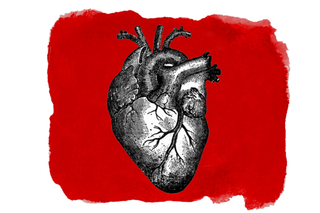
Despite More Women Dying From Heart Disease, They Are Excluded From Research
The lack of women in trials of cardiovascular research severs the quality of treatments for heart diseases, increasing the risk of misdiagnosis.

Despite more women dying of heart disease than men, cardiovascular research around the female body remains limited. A new analysis of women’s involvement in clinical trials shows how factors like inaccessibility of clinics and limited awareness, along with lack of research on females, leads to research skewed in favor of the male body.
Experts looked at 740 cardiovascular clinical trials conducted between 2010 and 2017 to analyze the motivations and barriers of participating in trials. Overall, women accounted for only 38% of the total participants — the perceived risk of harm was more pronounced.
What is striking is that because women’s heart health remains ignored, it’s one of the leading causes of mortality among women. You’d think, this would mean that most research on cardiac illness would center around women. Alas, no. The lack of female representation in clinical trials inevitably severs the quality of treatments and diagnoses they receive. This not only excludes them from healthcare policies but also increases risk of misdiagnosis.
In a report published last week in European Heart Journal, the researchers outlined barriers common among males and females, and those exclusive to women. While restrictions such as time constraints, and potential for unfavorable outcomes were common to both sexes, for females, the trial risk perception was higher.
“For many years it was usual practice that studies on heart disease primarily included white men,” Dr. Jeske van Diemen, one of the study’s authors and a researcher at the Amsterdam University Medical Centre in the Netherlands, said. The Caucasian male emerged to be the “norm” population, where research around their response to clinical drugs became the underlining scientific theory.
“…women more often have barriers which make it difficult to attend follow-up appointments, such as not holding a driving license or caring for grandchildren,” Diemen noted.
Perhaps, the most critical reason that influences participation is the assumption that heart health manifests in similar ways in males and females. “Currently, we treat many patients as if they were the same, which of course is not the case,” Dr. Diemen added.
It is no surprise that clinical trials, historically, have used the male specimen as an anchor. Women and foetuses were generally excluded from clinical drug research due to complications that arose in the early days. Moreover, the variations in hormones and other specifications made the female body an unexplored arena in scientific research.
Related on The Swaddle:
Women’s Heart Health Is Ignored Because of Gender Bias, Needs More Research: Lancet Report
“It was assumed that the results were also relevant to women and other races but the evidence is emerging that this is not the case. For instance, female heart patients have a greater risk of adverse drug reactions compared with male patients, and these reactions are generally more serious. Similarly, it has been suggested that women with heart failure may need lower doses of medications than their male counterparts,” the researchers noted. There is a difference in the very physiology: females have smaller kidneys and more fat tissue, as an example.
It can be noted that more participation of females in the research process will help identify symptoms and bodily variations unique to females, shape nuanced treatment options, and also increase access to patients across different socioeconomic positions. A report in Lancet recently also noted how lack of cardiovascular data affects women, pushing for more gender-specific research on the subject.
“Cardiovascular disease in women remains understudied, under-recognized, underdiagnosed, and undertreated,” it stated.
The consequences of the gender gap are severe. For one, women who complain of chest pain as a symptom of heart attack are likely to be ignored, with their pain underestimated. The higher risk of misdiagnosis and late diagnosis can be fatal. Think Grey’s Anatomy, and how one of the characters, Dr. Miranda Bailey (played by Chandra Wilson), complained of chest pain, difficulty in breathing and self-diagnosing herself as at risk for cardiac arrest was dismissed by her male peers as her being paranoid or linked to her mental health. She eventually did have the arrest and it wasn’t pretty for anybody.
The research calls for increasing gender balance in cardiovascular trials. Currently, the focus is on treating female and male patients equally; the focus instead should be on following principles of “equity” — that is, focusing on their individual health needs. The balancing act along sexes falls short in accounting for unique heart health needs.
Angela Saini, author of Inferior, a book that explores clear instances of female exclusion in science and research, acutely notes the gendered limitations of any research. “A lot of people – especially scientists – view science as perfectly objective and rational. But the questions researchers choose to ask, and the answers they come up with, are heavily affected by their prior assumptions…Science won’t improve unless we understand that we all have biases and those biases affect research,” she told The Guardian.
Experts have suggested ways to encourage females: by improving access to trial sites through video calls or collecting samples from home to eliminate the need for travel, recruiting research teams that are diverse and inclusive, and most importantly, being more mindful of the needs of female trial participants.
As the researchers noted, “Study populations that better represent the demographics of society should lead to more relevant findings that improve cardiovascular outcomes for everyone.”
Saumya Kalia is an Associate Editor at The Swaddle. Her journalism and writing explore issues of social justice, digital sub-cultures, media ecosystem, literature, and memory as they cut across socio-cultural periods. You can reach her at @Saumya_Kalia.
Related


How I Have Sex: ‘I Don’t Enjoy the Feeling of Penetration, Even With a Finger’
